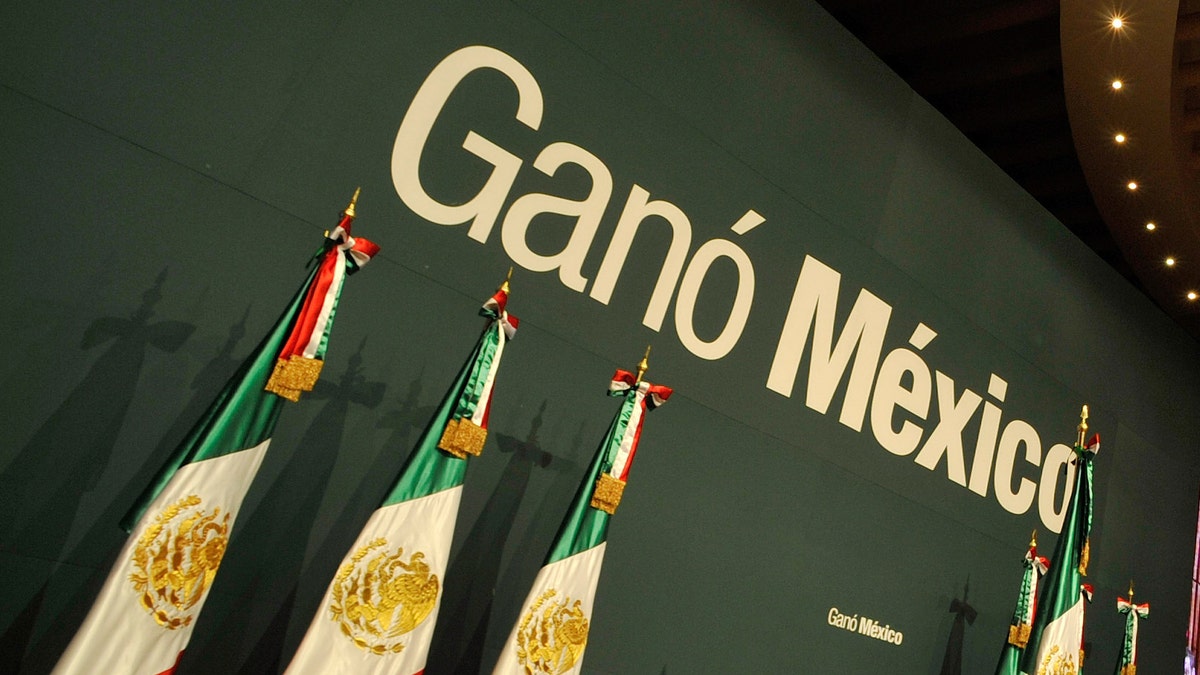
(Photo by Daniel Aguilar/Getty Images) (2012 Getty Images)
Thanks to an improving economy in their country, Mexicans are staying home.
A Gallup poll released Monday said just 14 percent of Mexicans say they would emigrate from the country, compared to 21 percent in 2007.
In an interesting twist, the current numbers are almost identical to the 11 percent of Americans who say they would leave the U.S. if given the opportunity.
Since taking office, Mexico's new president, Enrique Peña Nieto, has made it a point to stress that his country "will work to improve the quality of life and opportunities in Mexico so that migration is a personal decision and not a necessity."
Due to burgeoning economic opportunities, the United States' largest immigrant group already has few reasons to cross the border.
As the United States continues to struggle to gain economic momentum following the 2008 recession, the Mexican unemployment rate has dropped to just 5 percent. U.S. Hispanics still have one of the highest unemployment rates in the country, at 9.8 percent.
Antonio Garza, a former U.S .Ambassador to Mexico, says the poll “is a snapshot of a trend that you have seen in the country over the last several years.”
“An expanding middle class in Mexico means more people are working here,” he said.
Mexico’s economic performance is closely linked to the U.S., where it sends almost 80 percent of its exports.
But thanks to a spike in the agriculture industry, Mexico’s economy grew by close to 4 percent last year, compared to just 2 percent in the U.S.
“More jobs are being created in Mexico which means there is less pressure for people to emigrate,” Manuel Suárez-Mier, a Mexican national and economist at American University’s School of International Service, told Fox News Latino.
The implications of these findings could affect the recent push for comprehensive immigration reform in the U.S.
“It’s good news in the sense that it might help the U.S. government to come up with sensible immigration reform,” Suárez-Mier said.
He said both sides can benefit from the economic growth in Mexico.
“It’s a good moment for the U.S.-Mexico bilateral relationship,” Suárez-Mier said.
